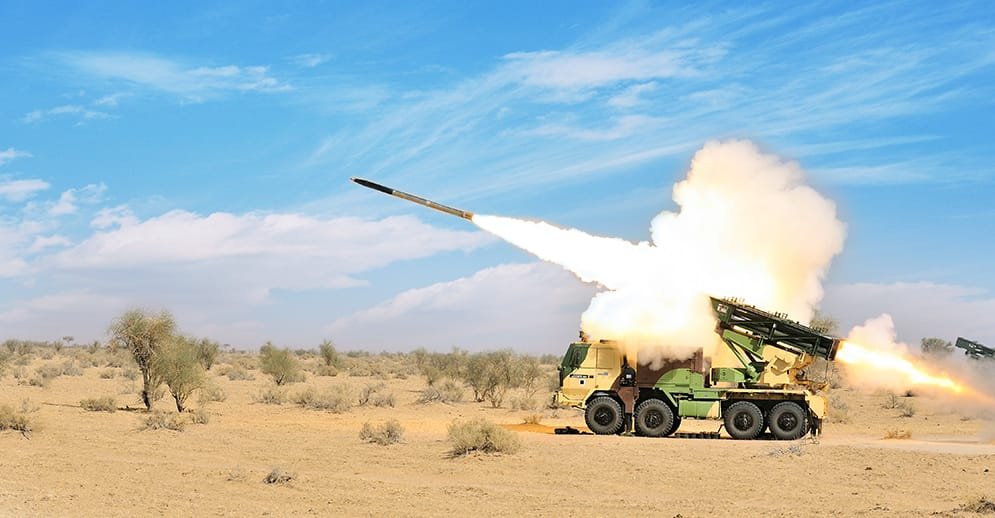Paris-New Delhi committed to economic prosperity

President of France, Emmanuel Macron, four-day visited to India from 9 March 2018 during which a number of Memoranda of Understanding (MoUs) were signed by the Indian and French governments.
Macron and Prime Minister Narendra Modi co-hosted the Founding Summit of the International Solar Alliance in New Delhi on 11 March 2018.
Strategic Partnership
The leaders welcomed the signing of the “Agreement between the Government of the Republic of India and the Government of the Republic of France regarding the Exchange and Reciprocal Protection of Classified or Protected Information”, reflecting the high level of strategic trust between the two countries.
Both sides also agreed to create an annual defence dialogue at the ministerial level.
They welcomed the “Joint Strategic Vision of India-France Cooperation in the Indian Ocean Region”, as a guiding beacon for such partnership.
The leaders reiterated that this cooperation will be crucial in order to maintain the safety of international sea lanes for unimpeded commerce and communications in accordance with the international law, for countering maritime terrorism and piracy, for building maritime domain awareness, for capacity building and for greater coordination in regional/international fora in the region.
The two leaders noted with satisfaction the on-schedule progress in the implementation of acquisition related agreements, including the Rafale aircraft agreement signed in 2016.
They also noted the commissioning of INS Kalvari, the first Scorpene submarine made in India by Mazagon Dock Shipbuilders Ltd., in collaboration with Naval Group, the French shipbuilder.
They looked forward to continue their discussions to expand and deepen the ongoing defence manufacturing partnerships.
They acknowledged that the Make-in-India initiative offers a valuable opportunity for Indian and French defence enterprises to enter into arrangements for co-development and co-production of defence equipment in India, including through transfer of know-how and technologies to the mutual benefit of all parties.
The leaders welcomed various joint ventures between Indian and French companies and reaffirmed their commitment to facilitate the establishment of new ones.
The leaders noted ongoing discussions between DRDO and SAFRAN on combat aircraft engine and encouraged necessary measures and forward looking approaches to facilitate early conclusion.
Nuclear
In pursuance of the 2008 Agreement on the Development of Peaceful Uses of Nuclear Energy between India and France as well as the January 2016 roadmap of cooperation, the two leaders noted with satisfaction the conclusion of the Industrial Way Forward Agreement between NPCIL and EDF for the Implementation of six nuclear power reactor units at Jaitapur, Maharashtra, India.
The two leaders reiterated the goal of commencing works at the Jaitapur site around the end of 2018, and encouraged NPCIL and EDF to accelerate the contractual discussions in that respect.
Once installed, the Jaitapur project will be the largest nuclear power plant in the world, with a total capacity of 9.6 GW.
It will contribute, in addition to renewable energy, to achieving India’s goal of 40% non-fossil energy by 2030.
In this context, they emphasized the need for the project to generate cost-effective electricity; economical and competitive financing package from the French side; reliable, uninterrupted and continued access to guaranteed fuel supply for the lifetime of the Jaitapur Nuclear Power Plants; and collaboration on transfer of technology and cost-effective localization efforts of manufacturing in India.
The latter includes transfer of rights on technology to be mutually agreed.
They welcomed the understanding shared by the two parties on the enforcement of India’s rules and regulations on Civil Liability for Nuclear Damages applicable to the Jaitapur project.
The understanding is based on the Civil Liability for Nuclear Damage Act 2010, the Civil Liability for Nuclear Damage Rules 2011, and compliance of India’s rules and regulations with the Convention on Supplementary Compensation for Nuclear Damage, ratified and notified to the IAEA.
The leaders welcomed the regular engagement between their atomic energy organizations and their growing collaboration in mutually beneficial scientific and training activities related to the peaceful uses of nuclear energy and particularly the cooperation between CEA/INSTN and DAE/GCNEP.
They also appreciated the long-standing relations and continuing interactions between their nuclear regulatory authorities – India’s Atomic Energy Regulatory Board (AERB) and France’s Autorité de sûretéNucléaire (ASN) – which have facilitated sharing of valuable experiences, best practices and developments related to nuclear safety and regulatory issues.
Space Cooperation
Building on the historical and formidable linkages in the arena of civilian space, the leaders welcomed the “India-France Joint Vision for Space Cooperation” which spells out the concrete areas of future cooperation in this field.
They acknowledged, in particular, the ongoing cooperation between their space agencies to realize the third joint satellite mission – TRISHNA, meant for eco-system stress and water use monitoring and also accommodation of French instrument on India’s OCEANSAT-3 satellite.
Prime Minister Modi and President Macron noted with satisfaction the depth of the ties between the two countries, particularly in the economic, educational, scientific, cultural and tourism sectors.
They welcomed the signing of a bilateral partnership agreement on migration and mobility, which will facilitate student and professional mobility between France and India by simplifying the conditions for entry and long term stay in the two countries.
Economic Exchanges
The leaders noted with satisfaction the involvement of French companies in several new and ongoing manufacturing partnership projects in India.
They were pleased with the robust expansion of research and development conducted by these companies in India. They equally highlighted the attractiveness of France for Indian investors.
Both sides noted with satisfaction the growth in bilateral trade during the recent period, and expressed their desire that this momentum be sustained with the aim of raising trade in goods to 15 billion euros by 2022.
They encouraged SMEs and mid-cap companies to play a growing role in the economic and commercial exchanges between the two countries. Reaffirming their commitment to facilitate a conducive environment for enhancing bilateral trade and investment, the leaders:
a. Underlined the importance of regular and sustained economic cooperation dialogue through the India-France Joint Committee,
b. Welcomed the new recommendations presented by the Co-Chairs of the CEO Forum in Delhi in March 2018.
The two leaders stressed the importance of holding annually a Dialogue at the ministerial level to deepen cooperation in the economic and financial sectors.
The leaders recognized with satisfaction a vibrant educational cooperation within the Governmental framework and amongst Universities and academic institutes and encouraged them to increase the number and quality of student exchanges, with the aim of reaching 10,000 students by 2020
The leaders recognized with satisfaction, the role played by the Indo-French Centre for Promotion of Advance Research (CEFIPRA) and congratulated it on its 30th anniversary, which was celebrated in 2017.
They encouraged CEFIPRA to expand its role through interactive continuum between research, market and societal needs by linking the discoveries from fundamental research and their technological applications. In order to expand the scope and content of the bilateral cooperation in science, technology and innovation, the leaders emphasized the need to convene the Joint Committee on S&T in 2018.
The two sides reaffirmed their commitment to lead the fight against climate change, based on the principles of climate justice, fostering climate resilience and low greenhouse gas emissions development.
They committed to fully implement the Paris Agreement at the COP24 and further on, under the United Nations Framework Convention on Climate Change (UNFCCC) as a part of an irreversible global process at combating climate change for the benefit of all humanity. They stressed the positive contribution of the One Plant Summit in Paris on 12 December 2017 to this objective.
Solar Alliance
The two leaders welcomed the entry into force of the Framework Agreement of the International Solar Alliance (ISA) and underlined their commitment to furthering and deepening concrete projects and programmes under the aegis of ISA to mobilize affordable financing for massive solar energy deployment.
The two leaders reaffirmed that the strengthening of the India-French technological cooperation on renewable energy was a common priority for encouraging the emergence and dissemination of innovation in all the sectors.
They stressed the importance of mobilizing public and private funds to support the development of solar energy.
In this regard, they welcomed the establishment, within the International Solar Alliance, of an international committee of chambers of industry, and the willingness of MEDEF, SER, FICCI and CII among others to join it.
The leaders noted that efficient modes of transportation with low GHG emissions are an essential condition for the sustainable development and economic growth of India and France.
They recalled the strong ambitions of the two countries with regard to the development of electric mobility.
In this regard, they welcomed the signing of a Statement of Intent between the French Ministry for Ecological and Inclusive Transition and NITI Aayog, which will be supported by French technical assistance provided by French Development Agency (AFD).
The leaders reaffirmed the commitment of both countries to strengthening their railway cooperation and noted with satisfaction the completion of feasibility study for semi-high speed upgrade of the Delhi-Chandigarh section and station development study of Ambala and Ludhiana stations.
Both sides agreed that future technical discussions on upgradation of speed of the Delhi-Chandigarh sector will necessarily take into account the passenger and freight traffic load on the section and the complexities it entails.
The leaders also welcomed the establishment of a permanent Indo-French Railway Forum, bringing together the French Ministry of Ecological and Inclusive Transition, and SNCF (French Railways) on the one hand, and the Indian Ministry of Railways on the other, to pave the way for industrial cooperation between the two countries.
Smart Cities
Prime Minister Modi and President Macron noted with satisfaction the excellent Indo-French cooperation on sustainable cities and Smart Cities, marked by numerous cases of innovation sharing and fruitful collaborations between French and Indian stakeholders.
They welcomed the exemplary cooperation programme in the three Smart Cities of Chandigarh, Nagpur, and Puducherry, and the extension of AFD’s technical assistance programme under the framework of this Mission. They welcomed the signing of the loan agreement between the AFD and the Government of India for 100 million euros in support of the Smart Cities Mission.
As Strategic Partners, the two countries share converging views on key regional and global issues and continue to consult and coordinate closely with each other on matters of common interest.
The leaders reaffirmed their support for the strategic partnership between the European Union and India, based on shared principles and values, as well as a commitment to a rules-based international order.
They agreed that India and the EU should deepen their cooperation on multilateral and security issues, as well as on economic, trade and climate change issues and welcomed the outcome of the 14th EU-India summit held in New Delhi on 6 October 2017.
They expressed support to the efforts of both sides to re-engage actively towards timely relaunching of negotiations for a comprehensive and mutually beneficial EU-India Broad Based Trade and Investment Agreement (BTIA).
India and France acknowledged the importance of connectivity in today’s globalised world. They underlined that connectivity initiatives must be based on key principles of international norms, good governance, rule of law, openness, transparency; follow social and environmental standards, principles of financial responsibility, accountable debt-financing practices; and must be pursued in a manner that respects sovereignty and territorial integrity. fii-news.com








